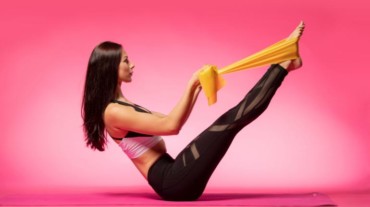
Several researchers have proven time and again that exercise and being physically active is not only good for the body, but also the mind. In fact, The American Psychological Association recommends therapists and mental health professionals to prescribe exercise to manage symptoms.
Learning Pilates is more mentally demanding than many other types of exercise, for instance running or lifting weights. Those are beneficial too, but Pilates combines two important factors to improve brain health: physical activity and learning new skills.
A group of researchers from the University of Illinois, reported in their journal of physical activity and health that those who practice Pilates have superior brain function after a mindful session, as compared to those who perform aerobics.
Learning new activities is proven to make our brain healthy, as it challenges us to learn new things. Several studies have proven that learning a new movement or modification in a Pilates routine provides just the effect we are looking for, by challenging the body and mind at the same time.
A healthy nervous system means better coordination between your brain and other parts of your body. It also helps in the release of stress-fighting and mood-boosting hormones.

Pilates lets you concentrate your attention on your body. Whether you want it or not, you must clear your mind of any distractions if you are performing Pilate’s coordination work on the reformer, or if you are just visualizing an innerspring in your core that your instructor is talking about.
Pilates relieves stress built up in the muscles through gentle stretching and gradual conditioning. Joseph Pilates said, ‘A body free from nervous fatigue and tension is the ideal shelter provided by nature for housing a well-balanced mind, fully capable of successfully meeting all the complex problems of modern lifestyle.’
Meditation practices and exercise have been said to improve creativity and help us manage our wide range of emotions. When we combine the two in Pilates, we get a better result for our body and our mind.
Lack of sleep can lead to various types of mental health problems and issues. According to several studies, Pilates can improve sleep for people under the age of 40 in both men and women.

Reaping benefits from any kind of physical activity don’t necessarily have to be time-consuming. Various studies have pointed out that, even a single session of Pilates, is said to decrease the levels of depression, anxiety and fatigue while improving one’s energy levels at the same time (Fleming, Campbell, & Herring, 2020). Pilates not only enhances your core strength, posture, and flexibility, but you’ll have more energy while keeping your mental health in check.
Get Latest Updates on Fitness, Muscle Gain, Staying Fit, Weight Loss